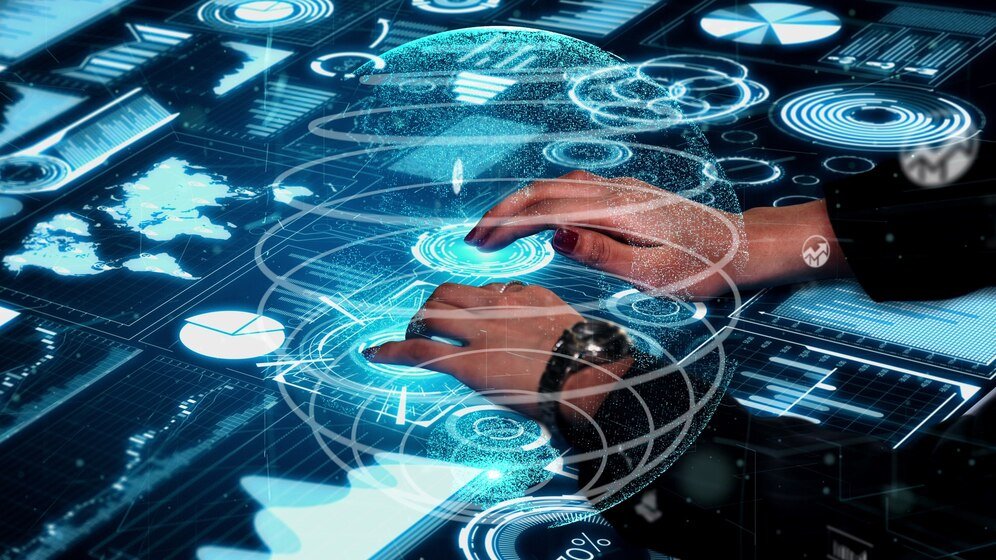Sensor and Data Operations: Enhancing the Operational Scope of Advanced Digital Systems

Table of Contents
As digital transformation gathers pace globally, achieving a decadal metrics change, sensor and data operations can be regarded as basic in determining how industries and technologies operate. Whether it is a matter of manufacturing, health care, or transportation, these are operations that ensure that data has been accurate, decisions are well-founded, and the overall operations have high efficiency.
What Are Sensor and Data Operations?
Explaining in simple terms, sensor and data operations are very critical for technology; they are simply processes that entail receiving data that is inappropriately used or data received from a number of gadgets for some optimization purposes, such as control or monitoring. Environmental changes such as temperature, pressure, humidity, light, and motion are detected by sensors, which are instruments used to transform these environmental changes into data that can be processed by a device.
This is where sensor and data operation come in: the data acquired is correct, acquired within a specific timeframe, and collected information is adequate. This is very important for systems operating in real time and necessitating data in real time, like in automated manufacturing systems, automated motor vehicle systems, and intelligent health systems. Such systems would at no point be optimally utilized without a firm sensor and data operation base.
Sensor and Data Operations and Their National Importance in Other Sectors
Manufacturing:
For the manufacturing sector, sensor and data operations are essential in facilitating automated case processes and machinery monitoring. Sensors are performing measurements of operational continuity, identifying defects while measuring speed of production and the quality of goods. This enables real-time monitoring so that any variance can be taken care of immediately, thereby increasing productivity and minimizing interruption.
Healthcare:
In this case, sensor and data operations have a huge contribution and have a great significance for the health of patients or diagnosis as well as therapy methods of the patients. There are portable devices fitted with sensors that measure heart rate, temperature, and oxygen level of the patient. The information is passed to the medical doctors to enable them to act quickly on the patient whenever they need to.
Transportation:
There has been the emergence of car engines where self-driving and parking is done with limited human intervention, which is due to high sensor and data operation. Cameras, radar, and LiDAR are the most common sensors that create data about the environment around the automobile. This data is analyzed and used to drive the car by turning the wheel, accelerating, or stepping on the brakes for safe driving.
Challenges in Sensor and Data Operations
The widespread application and need for sensor and data operations evidenced the existence of several challenges. One of these problems is information overload. Given many sensors operating at the same time, a fair amount of information has to be processed in real time. Maintaining data quality and sifting out the noise is important but is also not easy to accomplish.
Another challenge faced is sensors as machines. Machines such as sensors may also have a lifespan or wear out and hence not serve as effectively as they used to serve. It is important that they are serviced periodically to perform at the best they can.
Future Trends in Sensor and Data Operations
Artificial intelligence (AI) and machine learning (ML) will be the future of both sensor and data operations. The speed and accuracy factors will allow systems to use sensor data and make decisions entirely based on the information received from the sensors. Real-time monitoring and updating of sensor networks with the help of self-learning algorithms can increase the efficacy of the sensor network.
Edge computing is another trend that enhances sensor and data operation. Field placements of devices for data collection make it easier and more efficient to make critical decisions that require immediate action.

Conclusions
Sensor and data activities cut across the sectors, and it is hard to do without these technologies in contemporary times. These activities help in supporting efficiency and safety by enhancing both the quality of data collected and analyzed. There are further and greater developments expected in the sensor and data operations with the growth of technology, in particular AI and edge computing, leading to more powerful systems.
FAQs on Sensor and Data Operations
Q: What are sensor and data operations?
A: Sensor and data operations refer to any and all the activities incorporating collecting, processing, and using data produced by sensors in certain systems.
Q: What is their significance in sensor and data operation?
A: These operations support up-to-date data across the board, which is important for systems including manufacturing processes, medical health supervision, and autonomous vehicles as well.
Q: What issues do sensor and data operations deal with?
A: Data overload or information retrieval, as well as sensor malfunctioning, are some of the issues that arise here as well that need to be solved by sophisticated algorithms and continued upkeep, respectively.
Q: What is the role of AI with regards to sensor and data operations?
A: AI will improve data management, resulting in quicker and better decisions based on what is presented by sensor data.







